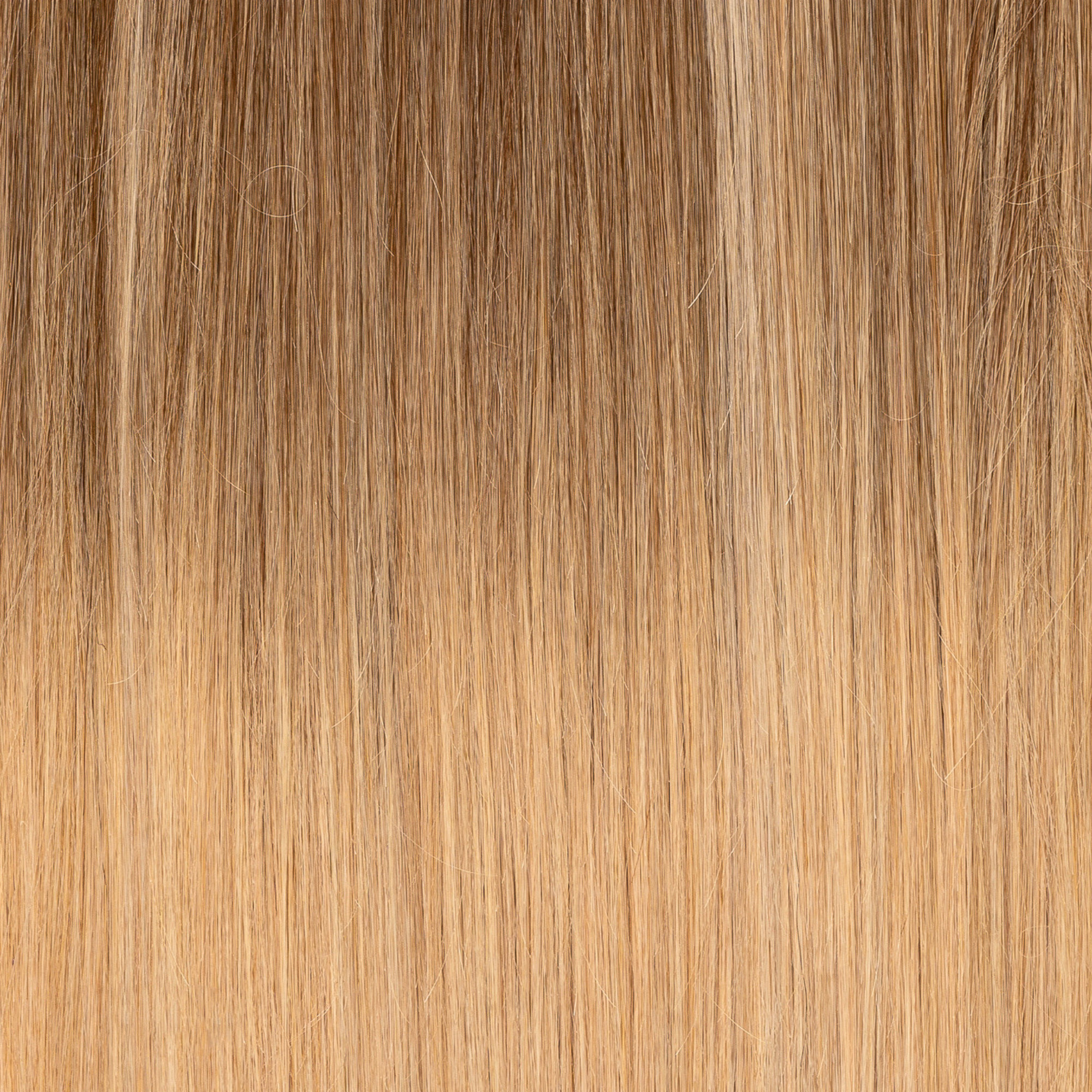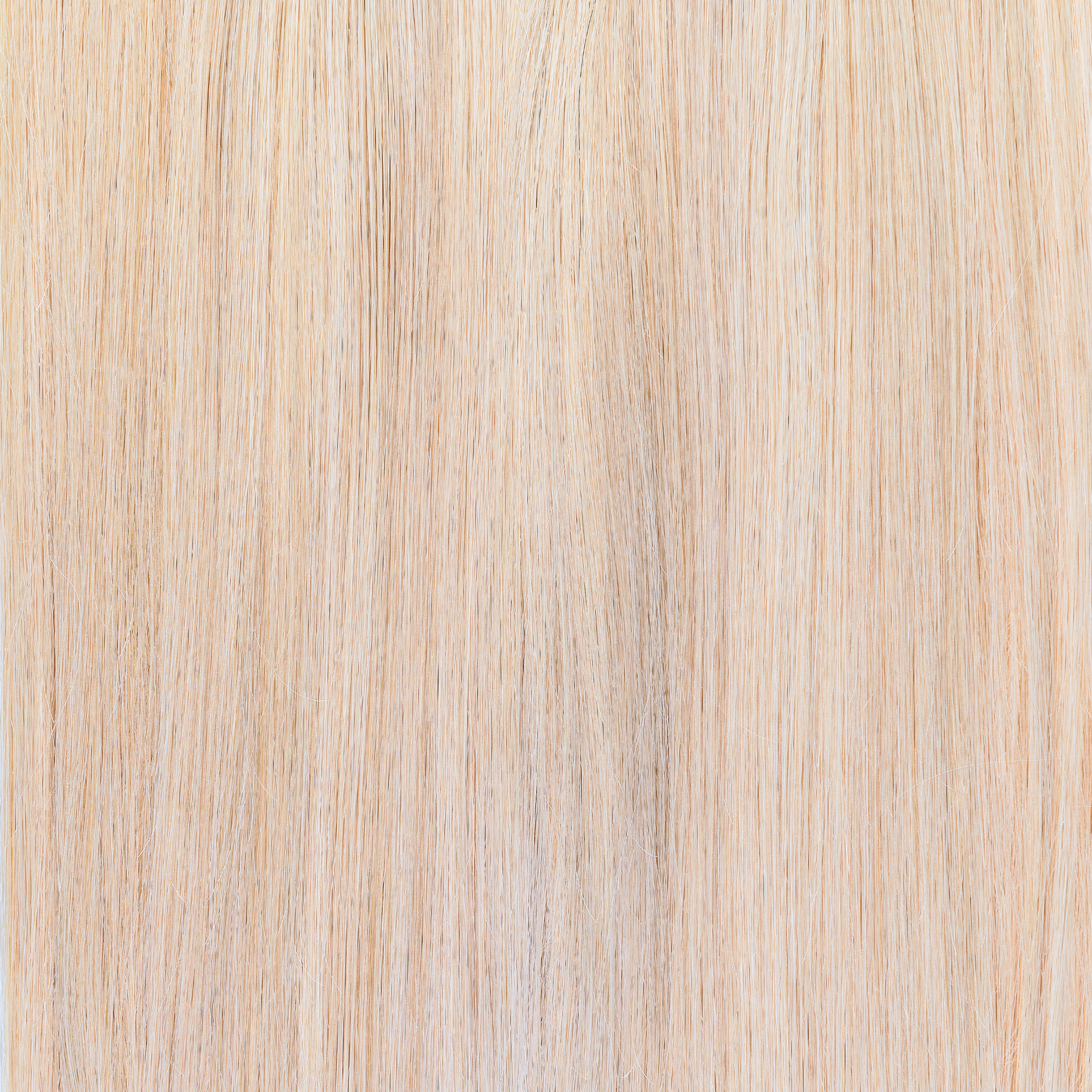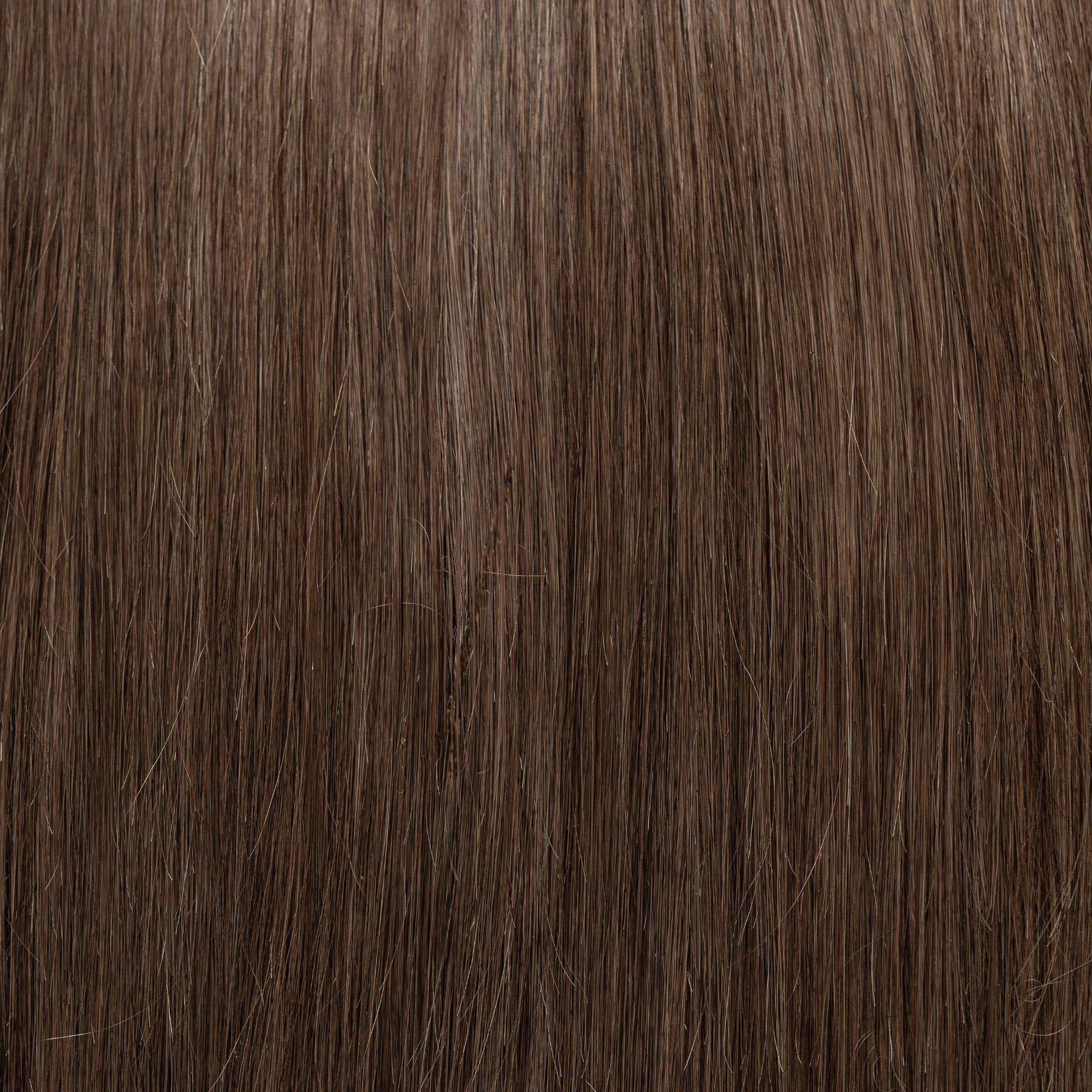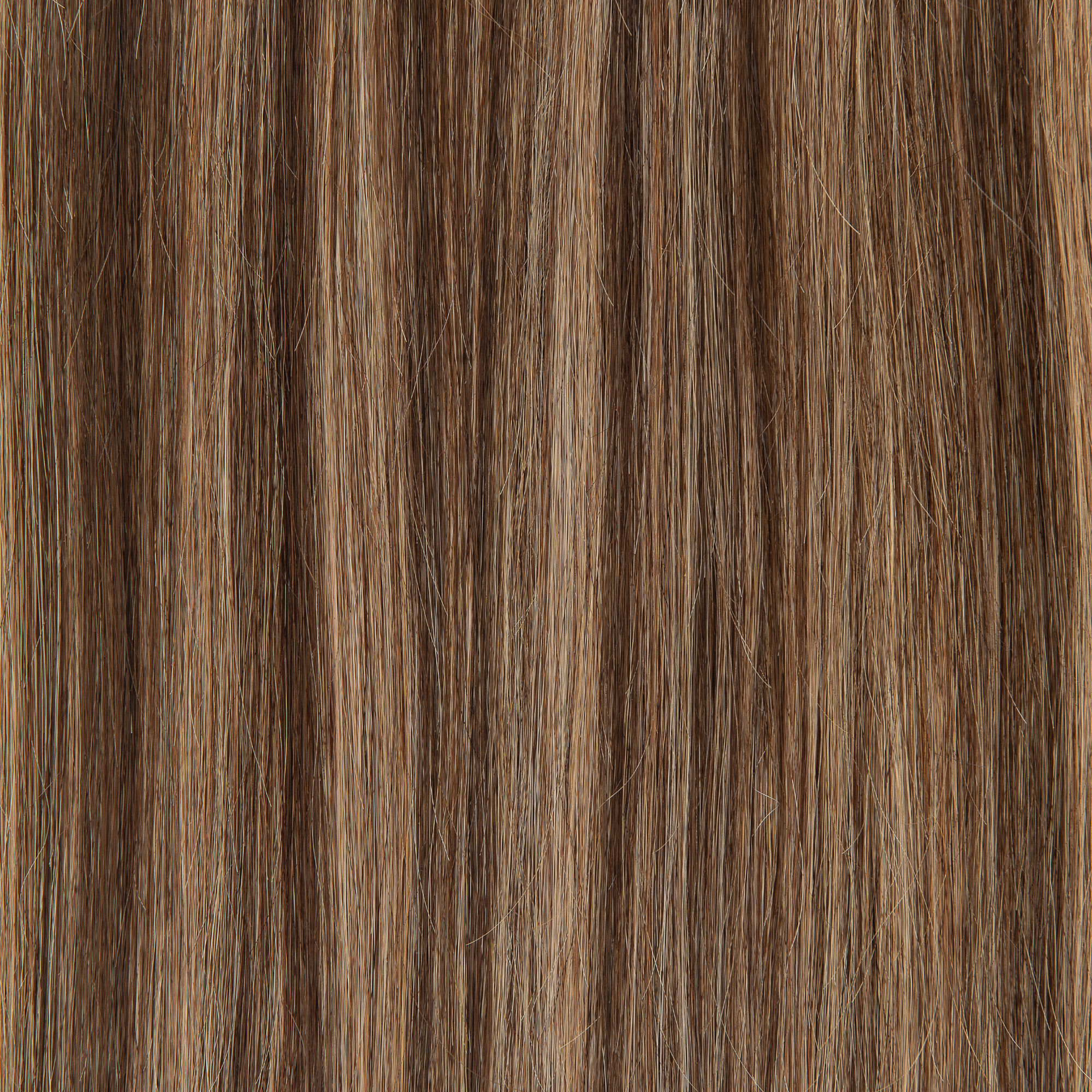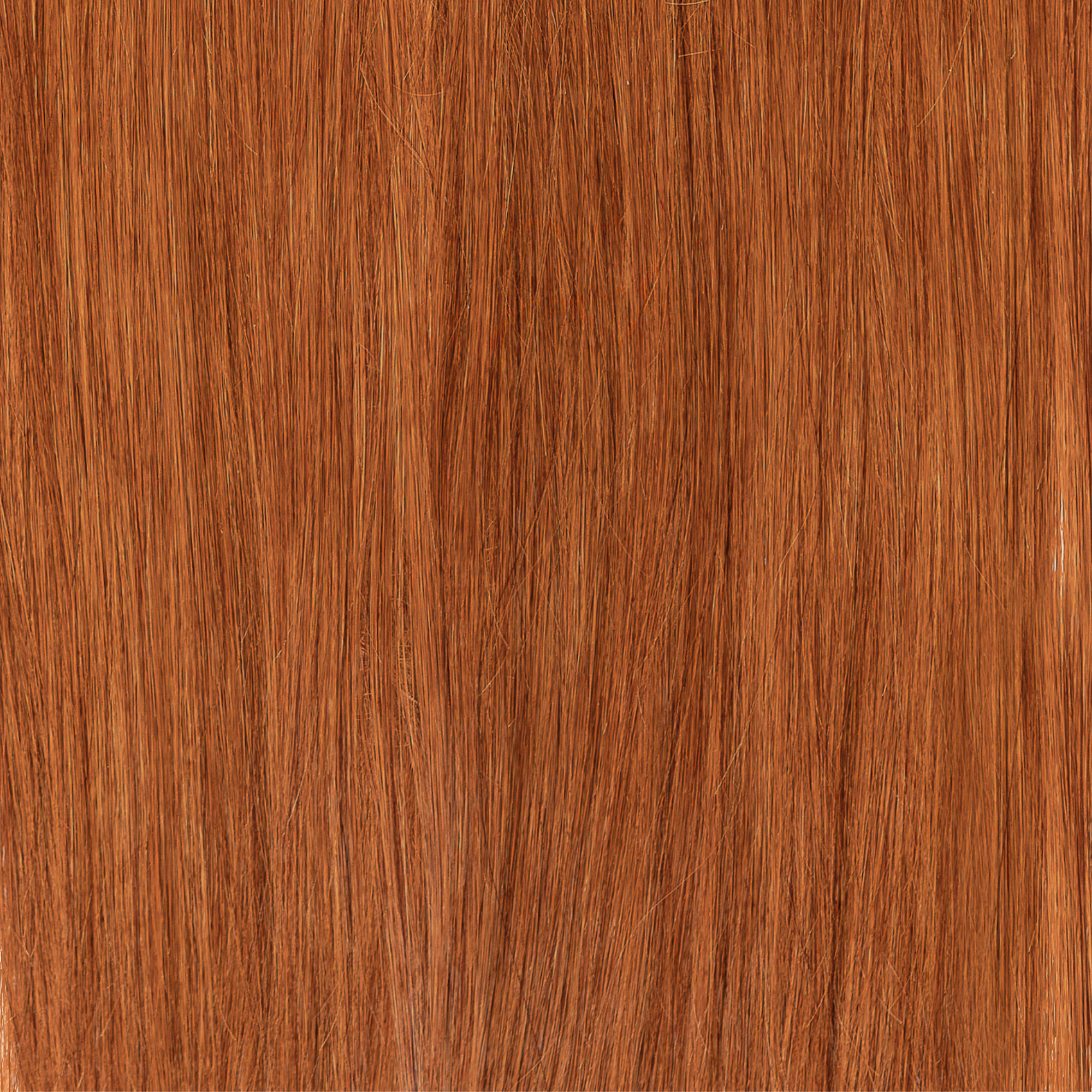
Hormonal Havoc: How Hormonal Changes Can Lead to Hair Loss and What to Do About It
- Irene GilmanHave you been noticing an excessive amount of hair in your brush or shower drain? Hair loss due to hormone imbalance might be to blame, triggering unexpected hair thinning or loss. From stress to vitamins, various factors impact your locks, but don't worry—Atelier Extensions’ here to guide you. There are steps you can take to restore the beauty and volume to your hair.
Stress-Induced Hair Loss: The Silent Culprit

Stress is a powerful force, and it doesn't just affect your mood or energy—it can also leave a visible mark on your hair. If you've been feeling more overwhelmed lately and noticing more strands on your pillow or in your brush, stress could be behind your hair loss. One of the most common ways stress impacts your hair is through a condition called telogen effluvium.
What is Telogen Effluvium?
Under normal circumstances, your hair goes through a growth cycle, with each strand spending time in a growth phase (anagen), a rest phase (telogen), and eventually falling out when it's time for a new hair strand to grow in its place. Stress can disrupt this cycle, forcing a larger than usual number of hair follicles to prematurely enter the telogen phase, the resting stage. During this phase, hair growth slows, and the follicles stop producing new hair, causing your hair to shed at an accelerated rate.

In extreme cases, you may notice large clumps of hair falling out, especially when brushing or washing your hair. This type of hair loss tends to occur a few months after a significant stressor, which can include anything from a traumatic event like a death or illness, to ongoing stress from work, relationship issues, or financial concerns. The result is thinning or noticeable shedding, but fortunately, the condition is often reversible.
How Stress Triggers Hair Loss
When your body experiences stress, it releases the hormone cortisol—commonly known as the “stress hormone.” Cortisol is designed to help the body manage short bursts of stress, but when levels remain elevated for prolonged periods, it can negatively affect a variety of bodily functions. One of these functions includes hair growth.
Chronic stress can interfere with the signals that regulate your hair follicles, causing them to prematurely shift into the shedding phase. This is particularly common after stressful events like a move, a breakup, or even the stress of constant work pressure. For many, stress-induced hormones causing hair loss can feel like an additional burden on top of the stress they’re already experiencing, but understanding the connection between hormone imbalance and hair loss can help you regain control.
The Good News: It’s Often Temporary
The bright side is that stress-induced telogen effluvium is typically temporary. Once you identify and address the source of your stress, your hair can begin to recover. The shedding typically slows down and the follicles return to the growth phase, allowing new hair to emerge. It can take several months for the shedding to stop and for hair to fully regrow, so it’s important to be patient during this period.
However, if stress continues to be a factor, your hair might continue to shed, which is why it’s essential to take action and manage your stress effectively to help stop the cycle.
Sex Hormones: The Big Players in Hair Thinning

Sex hormones—primarily estrogen and testosterone—have a significant impact on the health of your hair, with fluctuations in these hormones being a common cause of hair thinning. Women's hair loss due to hormones change during key life stages, such as pregnancy, menopause, or due to the use of birth control, can lead to noticeable hair shedding or thinning.
During pregnancy, women experience a surge in estrogen, which extends the hair's growing phase (known as the anagen phase). This causes hair to stay in place longer, preventing it from shedding as quickly, often leading to thicker, more luxurious hair. However, after childbirth, when estrogen levels drop dramatically, many women experience postpartum hair loss due to hormones. This can be especially frustrating, as hair that had stayed in the growth phase starts to shed all at once, typically a few months after giving birth.
Similarly, during menopause, the decline in estrogen levels—along with shifts in other hormones—can cause hair to become thinner and more brittle. In some cases, women may notice hair thinning more pronounced around the crown or temples, areas most affected by hormonal changes. This is often temporary, but in some cases, the thinning can persist without the right balance or treatment.

On the other hand, testosterone, a male hormone that is also present in women, can cause hair thinning when present in excess. Conditions like polycystic ovary syndrome (PCOS), which leads to elevated testosterone levels, are often associated with hair thinning around the temples and the top of the head. This kind of hair thinning is typically different from the pattern seen with estrogen fluctuations, as it tends to cause more noticeable thinning or even hairline recession.
Understanding how estrogen and testosterone influence hair growth is essential for managing hormone-related hair loss. The key to managing this type of thinning lies in working closely with your doctor to pinpoint the cause and explore treatment options. For example, hormonal therapies or adjusting birth control methods may help restore balance, while lifestyle changes and targeted treatments can support healthier hair growth during these hormonal shifts. Addressing the root cause—whether it's pregnancy, menopause, or a condition like PCOS—can significantly improve the outcome and help you regain thicker, fuller hair.
Low Ferritin: A Red Flag for Hair Health

For healthy hair growth, ferritin, the protein that stores iron in your body, is key. When your ferritin levels are low, it can lead to an array of issues, one of the most noticeable being hair loss. Ferritin acts as a storage form of iron, which is vital for transporting oxygen to your hair follicles. Without enough iron, your follicles may not get the nutrients they need to produce strong, healthy hair, which can result in hair shedding and slower regrowth.
If you’re not getting enough iron in your diet, whether due to poor nutrition, medical conditions like heavy periods, or anemia, your ferritin levels can drop. When this happens, your body prioritizes essential functions—like maintaining your organs—over non-vital processes like hair growth, leading to thinning or excessive shedding. Iron deficiency disrupts the hair growth cycle, forcing more hairs into the telogen phase (resting phase), which means they’ll shed faster than usual.
Symptoms of low ferritin may include fatigue, pale skin, dizziness, or brittle nails—aside from the noticeable hair loss. If you suspect that iron deficiency is contributing to your hair shedding, it’s important to consult your doctor and get a ferritin blood test. This simple test measures your ferritin levels and can help your doctor determine whether iron deficiency is the culprit.
In the meantime, you can boost your iron intake by incorporating iron-rich foods into your diet. Foods like spinach, lentils, red meat, and fortified cereals are great sources of iron. If you're a vegetarian or vegan, you can turn to plant-based sources like tofu, quinoa, and chickpeas. 
In cases where dietary changes aren’t enough to restore ferritin levels, your doctor might recommend iron supplements. It’s important to follow your healthcare provider’s guidance on dosages, as too much iron can be harmful. By addressing low ferritin levels, you can help your hair follicles get the nutrients they need to function properly and encourage healthier hair growth.
Thyroid Imbalances and Their Impact on Your Locks

Your thyroid plays an important role in regulating many of your body’s processes, including metabolism and hair growth. When your thyroid is not functioning properly, whether it's hypothyroidism (underactive thyroid) or hyperthyroidism (overactive thyroid), it can lead to noticeable changes in your hair.
An underactive thyroid can slow down your body’s processes, causing hair to become thin, brittle, and dry. In contrast, an overactive thyroid can cause your hair to fall out in clumps, disrupting the natural hair growth cycle. Both conditions interfere with the normal production of hair, causing shedding or texture changes.
If you've been experiencing hair issues along with symptoms like fatigue, unexplained weight changes, or dry skin, it could be a sign that your thyroid is out of balance. A simple blood test can check your thyroid hormone levels, helping you and your doctor identify the issue. Once diagnosed, your doctor can recommend treatments, such as medication or lifestyle changes, to restore balance and prevent further hormones affecting hair loss.
Vitamin D Deficiency: The Hidden Factor in Hair Loss

Did you know that Vitamin D, the sunshine vitamin, helps in regulating hair growth? Studies have shown that low levels of vitamin D can contribute to hair thinning and conditions like alopecia areata. When your body doesn’t have enough vitamin D, hair follicles may shrink, making it difficult for new hair to grow. To keep your hair healthy, it’s important to get enough vitamin D, whether through sunlight, fortified foods, or supplements. If you’re unsure whether you’re getting enough, a simple blood test can help determine your levels, and your doctor can recommend a course of action to restore balance.
B12 Deficiency: Don’t Let Your Hair Suffer

Vitamin B12 is another crucial nutrient for hair growth. This vitamin is crucial for sustaining red blood cells, which transport oxygen to your hair follicles. A deficiency in B12 can lead to fatigue, weakness, and, you guessed it—hair loss. Those on plant-based diets are especially at risk, as vitamin B12 is primarily found in animal products like meat, eggs, and dairy. If you’re noticing thinning hair and you follow a vegan or vegetarian diet, it might be time to get your B12 levels checked. Adding B12-rich foods to your meals or taking a supplement can help support your hair health.
How to Prevent Hormonal Hair Loss: Simple Lifestyle Changes
The good news is that you can take several proactive steps to prevent and manage hormones and hair loss in females related to hormonal changes:
-
Reduce Stress: Cortisol, the stress hormone, wreaks havoc on your hair. Incorporating stress-reduction practices like meditation, yoga, or even simple deep-breathing exercises can help restore your hair’s natural cycle.
-
Get Moving: Exercise is not only great for your overall health—it improves circulation to your scalp, promoting hair growth. Regular physical activity can also help balance your hormones, reducing the risk of hormone-induced hair loss.
-
Eat a Balanced Diet: Nutrition plays a key role in your hair’s health. Ensure you're getting plenty of vitamins, minerals, and protein to nourish your hair from the inside out. Foods rich in iron, vitamin D, and B12 are particularly important for preventing hair loss.
- Stay Hydrated: Water is essential for all of your body’s functions, including hair growth. Drinking enough water supports healthy circulation and helps maintain your hair’s moisture levels, preventing it from becoming brittle and dry.
Talk to Your Doctor About Hair Loss
If you’re noticing significant or persistent hair loss, it’s important to consult with your doctor rather than trying to address the issue on your own. Hormonal imbalances, thyroid problems, and nutrient deficiencies can often be identified through simple blood tests, helping pinpoint the underlying cause of your hair loss. Once your doctor has a clear picture of what’s going on, they can guide you toward the most appropriate treatments, like hormone therapy for hair loss, whether that involves managing stress, addressing hormonal fluctuations, or supplementing with vitamins to support healthy hair growth.
In addition to medical treatments, your doctor can help you determine if lifestyle changes, like diet adjustments or stress management, might play a role in your hair health. And if you're interested in non-medical solutions, such as adding volume with hair extensions for a confidence boost, a professional stylist can provide expert advice on the best options for you. Whether you're looking for long-term solutions or temporary fixes, seeking professional guidance is the best step toward getting your hair back on track.
Final Thoughts
Hormonal changes can be frustrating, but with the right knowledge and proactive steps, you can minimize their impact on your hair. By managing stress, eating well, and addressing any underlying health issues, you’ll be on your way to maintaining beautiful, healthy hair—no matter what hormonal changes you’re facing. Keep in mind that your hair is as unique as your body, and what works for one person may not work for another. Be patient with yourself, and if needed, seek professional help to restore the full glory of your locks.
However, if you find yourself struggling with thinning or volume loss despite your efforts, hair extensions can offer an immediate solution. Whether you’re looking for extra length, volume, or a temporary boost of confidence, high-quality clip-in extensions, especially blonde extensions are a great way to enhance your hair without commitment. With the right extensions, you can enjoy fuller, thicker hair while you work on restoring your natural growth. Don’t hesitate to talk to a stylist about how real hair extensions can complement your hair care routine, helping you feel fabulous no matter what challenges your hair may face.
